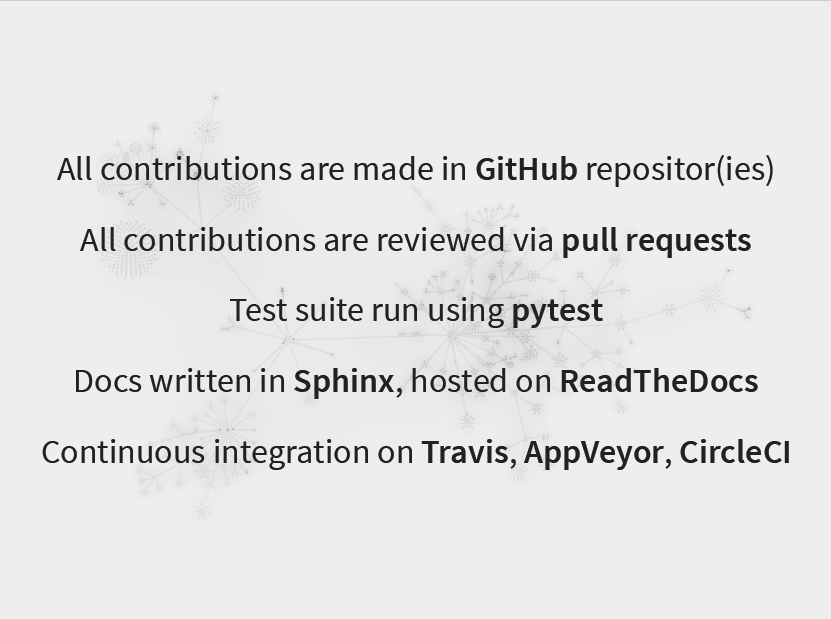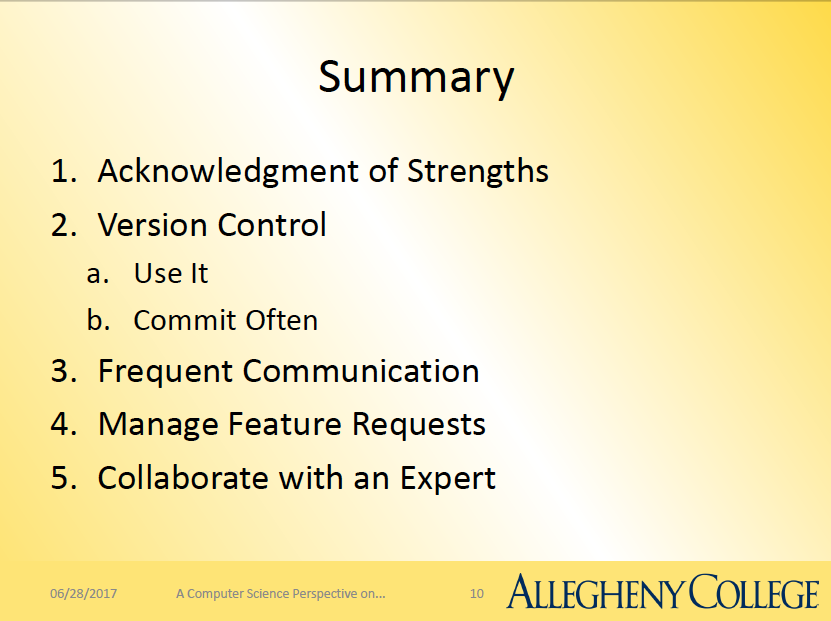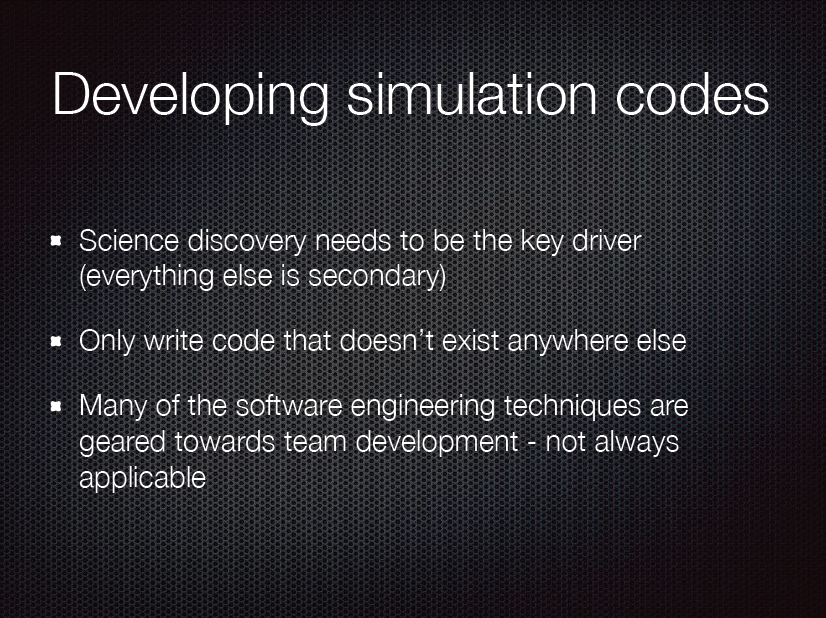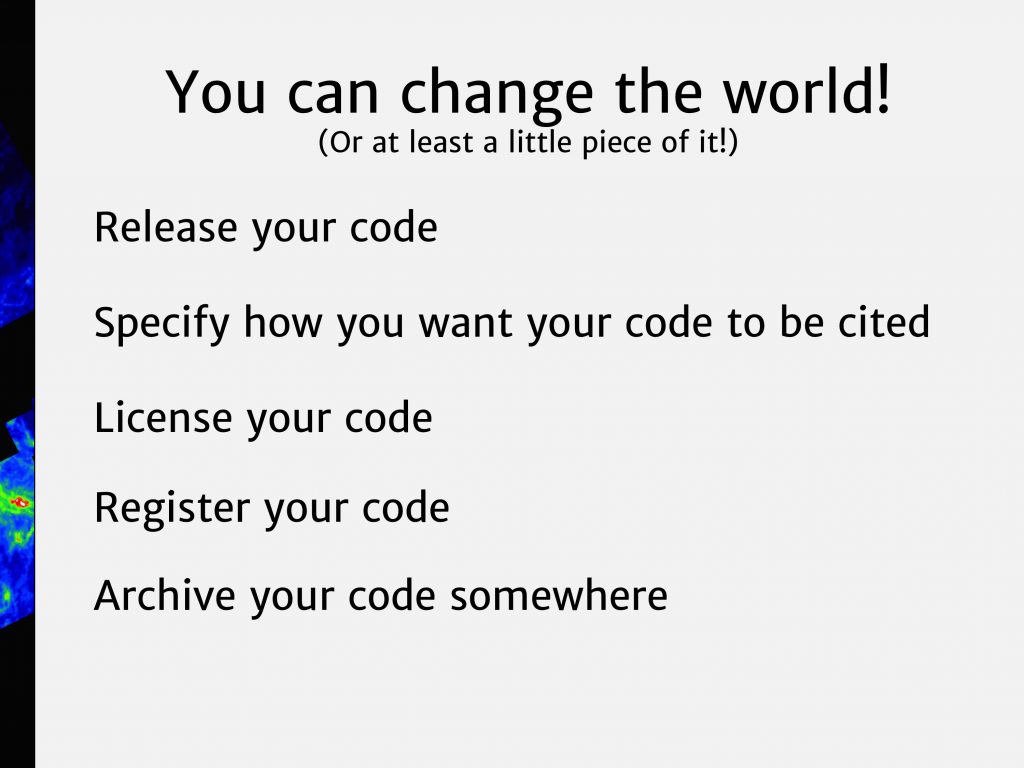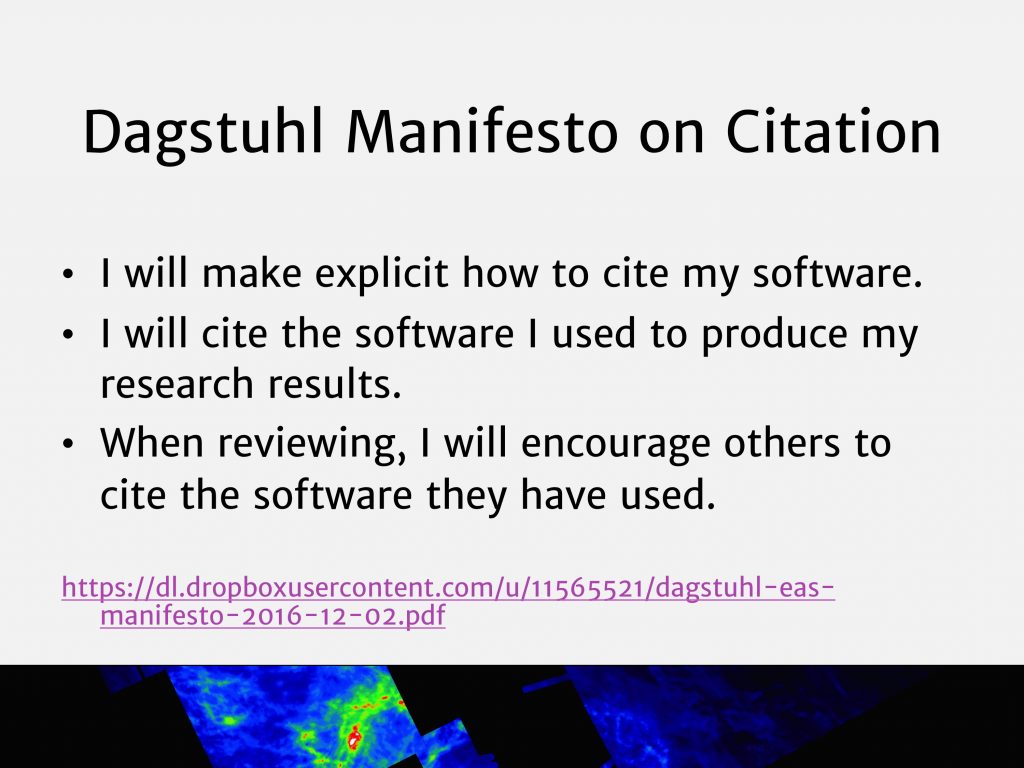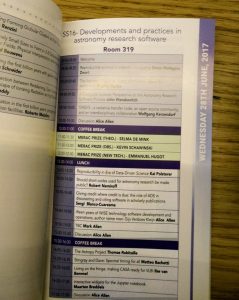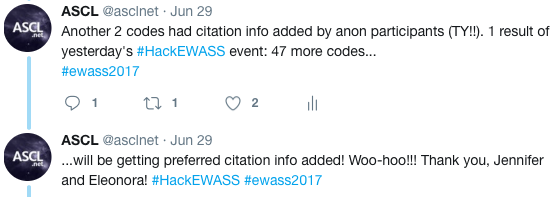The annual meeting of the European Astronomical Society (EAS), the European Week of Astronomy and Space Science (EWASS), was held June 26-30 in beautiful Prague. As mentioned in a previous blog post, Abigail Stevens (U Amsterdam), Amruta Jaodand (ASTRON), Matteo Bachetti (INAF-Osservatorio Astronomico di Cagliari), Rein Warmels (ESO), and I organized a Special Session titled Developments and Practices in Astronomy Research Software. Special Sessions at EWASS can be from one to three 90-minute blocks; we organized three blocks, each with its own focus and all scheduled on Wednesday, June 28, which were:
Best practices for code development and management
Perspectives in research software
Astronomy software packages review
The first two sessions opened with review talks, then had a series of slightly shorter presentations, each with a particular focus. Each of these sessions concluded with a 30-minute period in which the floor was open to all to ask questions of the speakers and discuss the issues and information that had been shared during the 90 minutes. The third session offered talks on specific popular software packages and concluded with lightning talks on the software posters submitted to this Special Session. In addition to this series of talks, a Hack Together Day was organized collaboratively that offered more information on and assistance with installing and/or using many of the software packages presented.
Session titles and presenters for the software sessions that Abigail Stevens (U Amsterdam), Amruta Jaodand (ASTRON), Matteo Bachietti (INAF-Osservatorio Astronomico di Cagliari), Rein Warmels (ESO), and I organize are listed below, and if you want to read through the Storify of session tweets, compiled by Stevens as a Hack Together Day project, that’s here: https://storify.com/abigailstev/developments-and-practices-in-astronomy-research-s
Best practices for code development and management
Moderator: Rein Warmels, ESO, Germany
This session opened with a talk by Simon Portegies Zwart (Leiden University, NL), author of AMUSE and other astro codes, on Reproducible science in scientific computing. He laid the groundwork for this block of talks by presenting the difficulties of reproducibility in simulation software, the best practices his group uses, and the philosophy behind AMUSE, which includes standardizing interfaces and automating as much as possible. His talk included simulations that made for an extremely large presentation file, so a partial set of his slides is provided.
(slides: PDF)
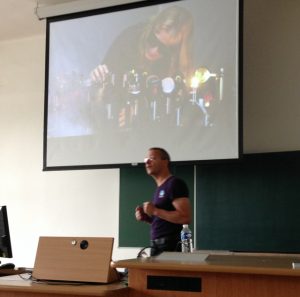
Simon Portegies Zwart
In the interest of time, I will not summarize the other talks in this block, but will say you should have been there! These were excellent presentations with many great practices and ideas shared. In the discussion, moderated by Warmels, someone asked about “short codes,” and as luck would have it, the next block had a talk on just that topic. There was disagreement on some voiced opinions, and many ideas shared that warrant greater discussion.
The other talks in this block were:
Software development best practices from Astropy
Thomas Robitaille, Freelance, UK (slides: PDF)
A Computer Science Perspective on the Astronomy Research Software Process
John Wenskovitch, Virginia Tech & Allegheny College, US (slides: PDF)
TARDIS: A radiative transfer code, an open source community, and an interdisciplinary collaboration
Wolfgang Kerzendorf, ESO, DE (slides: PDF)
Research software best practices: Transparency, credit, and citation
Alice Allen, ASCL, US (slides: PDF, PPTX)
Perspectives in research software
Moderator: Alice Allen, ASCL, USA/
Kai Polsterer (Heidelberg Institute for Theoretical Studies, DE) set the stage for the second block in the Special Session with his presentation Reproducibility in Era of Data-Driven Science. He also highlighted the difficulties of reproducibility, among them that different computing environments can produce different results from the same code, and though he acknowledged the difficulties in doing so, advocates that publications, datasets (including raw and training data), codes, component and software configuration, and computing environments need to be shared for full reproducibility. Or as John Wenskovitch summarized in a tweet during this presentation, “Publish everything. EVERYTHING. Architecture, model, code, data, parameters, …” We are not there yet, but must share what we can when we can to increase reproducibility.
(slides: PDF)
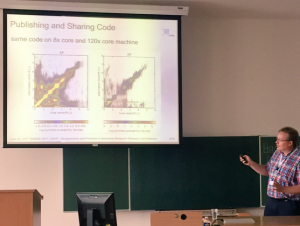
Kai Polsterer, image by @K_Bonson
The other talks in this second of three blocks were:
Should short codes used for astronomy research be made public?
Robert Nemiroff, Michigan Technological University, US (slides: PDF, PPTX)
Giving credit where credit is due: the role of ADS in discovering and citing software in scholarly publications
Sergi Blanco-Cuaresma, Harvard-Smithsonian Center for Astrophysics, US (slides: PDF)
Fifteen years of WISE technology software development and operations
Gijs Verdoes Kleijn, University of Groningen, NL (slides: PDF)
CDS reference services supporting astronomy research
Mark Allen, CDS, Observatoire Astronomique De Strasbourg, FR (slides: PDF)
Astronomy software packages review
Moderator: Amruta Jaodand, ASTRON, NL
The third block of talks in this Special Session presented software packages useful for software research, from the well-established AstroPy to, in the short poster presentations, newly-developed software such as SPARTAN. The talks in this 90-minute block were:
The Astropy Project
Thomas Robitaille, Freelance, UK (slides: PDF)
Stingray and Dave: Spectral timing for all
Matteo Bachetti, INAF-Osservatorio Astronomico di Cagliari, IT (slides: PDF)
Living on the fringe: Making CASA ready for VLBI
Ilse van Bemmel, JIVE, NL
Interactive widgets for the Jupyter notebook
Maarten Breddels, Kapteyn Astronomical Institute, NL (Jupyter notebook, ipywidgets demo (PDF), poster)
Lightning poster talks
Again, you should have been there! One blog post cannot possibly convey everything shared in this Special Session, but the slides the presenters have shared captures some of the great goodness in these talks. My thanks to all the presenters, to my co-organizers, and to the attendees who made this session so interesting and excellent, to EWASS for accepting our proposals, and to HITS for providing the ASCL with funding that allowed us to participate.
